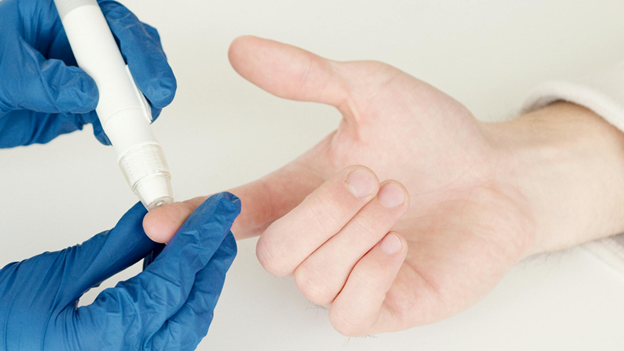Introduction
Type 2 diabetes is a condition becoming more common worldwide. In India, this rise is particularly notable. This disease affects how our body regulates and uses sugar. Understanding type 2 diabetes and recognizing its impact can empower people to manage their health better. Being aware of how to tackle it is crucial because lifestyle changes can help people lead healthier lives. This journey of knowledge is the first step toward managing or even preventing this condition.
Decoding Type 2 Diabetes
Type 2 diabetes occurs when the body cannot use insulin properly. Insulin, a hormone, helps sugar enter cells to be used for energy. When this doesn’t happen efficiently, sugar builds up in your blood. This is different from type 1 diabetes, where the body does not make insulin at all. People with type 2 diabetes may still produce some insulin, but their bodies are not responding to it as they should, leading to rising blood sugar levels.
Identifying Causes and Risk Factors
There are various factors that contribute to type 2 diabetes. Genetics can play a part. If a family member has diabetes, you might be at risk too. Lifestyle choices, like being inactive or eating a high-fat diet, can increase risk. Obesity is a significant factor, particularly for Indian communities. Extra body weight can make cells more resistant to insulin. Besides, age plays a role. As we get older, we tend to gain weight and become less active, both of which heighten risk. Ethnicity also matters, as people of certain backgrounds, including many in India, are more prone to type 2 diabetes.
Recognizing Symptoms and Diagnosing Type 2 Diabetes
Recognizing type 2 diabetes symptoms early can lead to timely intervention. Symptoms include fatigue, excessive thirst, and unexpected weight loss. These can sometimes appear so gradually that they are overlooked. Diagnosing type 2 diabetes typically involves blood tests. These tests measure blood sugar levels, which provide critical information for your doctor. In India, accessibility to these tests means more people can identify the disease early and manage it effectively.
Health Implications of Unmanaged Type 2 Diabetes
Unmanaged type 2 diabetes can lead to various health issues. Short-term effects can result from high blood sugar levels, making you feel very tired or dizzy. In the long run, if not controlled, type 2 diabetes can cause significant complications. These include heart disease or nerve damage, which are more serious. Understanding these risks underscores the importance of managing type 2 diabetes proactively.
Lifestyle Strategies: Prevention and Management
Managing or even preventing type 2 diabetes involves simple lifestyle changes:
- Nutrition: Eating balanced meals is central. Traditional Indian foods, when cooked healthily, can be great for managing diabetes.
- Physical Activity: Regular exercise helps your body use insulin better and keeps weight in check.
- Stress Reduction: Techniques like yoga or meditation can lower stress, which, in turn, benefits blood sugar levels.
These steps are not only effective for management but are also key in understanding diabetes how to prevent its onset.
Exploring Treatment Pathways
Type 2 diabetes treatment involves various methods: – Medications: There are drugs that help manage blood sugar levels for those who need them. – Lifestyle Modifications: Plenty of people have managed their condition through diet, exercise, and stress management alone. – Integrated Care: Combining medications and lifestyle changes can provide the best outcomes. Creating a comprehensive type 2 diabetes care plan ensures all aspects are addressed and managed.
Debunking Myths and Misconceptions About Type 2 Diabetes
There are many myths about type 2 diabetes that need busting. One common misconception is that only obese individuals can get it. In reality, anyone, regardless of size, can develop this condition. It’s also not caused by eating too much sugar alone. A variety of factors such as lifestyle and genetics combine to cause diabetes, not just diet.
Advocacy for Health Screenings and Community Support
Regular health screenings are crucial for catching type 2 diabetes early. These tests can alert you to issues before they become severe. In India, many community resources offer support and information. Joining local groups can provide additional help and education, making disease management more approachable.
Conclusion
In summary, understanding and addressing type 2 diabetes is vital. With knowledge and changes, one can manage symptoms and even prevent the disease altogether. Taking a proactive approach to health and seeking out information and support is empowering. Stay informed and take control of your health journey.



